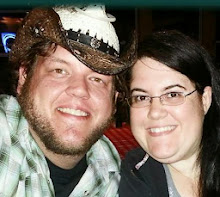- What could be done? We thought we had such problems. How were we to know we were happy?
- Is that how we lived, then? But we lived as usual. Everyone does, most of the time. Whatever is going on is as usual.
- If you have a lot of things, you get too attached to this material world and you forget about spiritual values.
- I want to be more than valuable.
- Nobody dies from lack of sex. It's lack of love we die from.
- I must endure, keep myself safe for later. What has happened to me, what's happening to me now, won't make any difference to him, he loves me anyway, he knows it isn't my fault. The message will say that also. It's this message, which may never arrive, that keeps me alive. I believe in the message.
- The greater the risk the greater the glory.
- I admired my mother in some ways, although things between us were never easy. She expected too much from me, I felt.
- But who can remember pain, once it's over? All that remains of it is a shadow, not in the mind even, in the flesh. Pain marks you, but too deep to see. Out of sigh, out of mind.
- This is something you can depend upon: there will always be alliances, of one kind or another.
- For every rule there is always an exception.
- It takes a while to get the wrinkles out, of anything new.
- Maybe none of this is about control. Maybe it isn't really about who can own whom, who can do what to whom and get away with it, even as far as death. Maybe it isn't about who can sit and who has to kneel or stand or lie down, legs spread open. Maybe it's about who can do what to whom and be forgiven for it.
- To want is to have a weakness.
- You can think clearly only with your clothes on.
- Live in the present, make the most of it, it's all you've got.
- If it's only a story, it becomes less frightening.
- Steel yourself, my mother used to say, before examinations I didn't want to take or swims in cold water. I never thought much at the time about what the phrase meant, but it had something to do with metal, with armor, and that's what I would do, I would steel myself. I would pretend not to be present, not in the flesh.
- Why expect one woman to carry out all the functions necessary to the serene running of a household? It isn't reasonable or humane.
- A rat in a maze is free to go anywhere, as long as it stays inside the maze.
- No mother is ever, completely, a child's idea of what a mother should be, and I suppose it works the other way around as well. But despite everything, we didn't do badly by one another, we did as well as most.
- You can't help what you feel, but you can help how you behave.
- The moment of betrayal is the worst, the moment when you know beyond any doubt that you've been betrayed: that some other human being has wished you that much evil.
- I'm not talking about sex, he says. That was part of it, the sex was too easy. Anyone could just buy it. There was nothing to work for, nothing to fight for.
- Better never means better for everyone, he says. It always means worse, for some.
- There's always something to occupy the inquiring mind.
- The more difficult it was to love the particular man beside us, the more we believed in Love, abstract and total.
- It's strange to remember how we used to think, as if everything were available to us, as if there were no contingencies, no boundaries; as if we were free to shape and reshape forever the ever-expanding perimeters of our lives.
- Freedom, like everything else, is relative.
- A movie about the past is not the same as the past.
- The way love feels is always only approximate.
Wednesday, August 18, 2010
The Handmaid's Tale by Margaret Atwood
Subscribe to:
Post Comments (Atom)

No comments:
Post a Comment